World Tuna Day was established by the United Nations in December 2016 and was first observed on 2nd May 2017. The aim of this day is to increase awareness of the importance of tuna and to promote more sustainable fishing practices.
Many countries depend upon tuna fisheries for food security and nutrition, as well as economic development, and it is believed that over 96 countries are involved in the conservation and management of tuna that has an annual ‘dock value’ of almost US$10 billion.
However, despite this many tuna fisheries are not managed properly; only four out of 19 major commercial tuna stocks worldwide are being managed to avoid overfishing[1] and several stocks are either overfished or subject to overfishing, or both. Bycatch remains a problem in some tuna fisheries[2], despite effective mitigation techniques being available, and illegal, unreported and unregulated (IUU) fishing, including human rights abuses, still occurs[3].
Since the GTA was formally launched in September 2019 we have been busy. We have broadened our partnership to include 5 new companies, including businesses in Asia, and have secured observer status at each of the four tuna RFMOs we are focussed on.
Our RFMO engagement work hit the ground running with advocacy concerning the disappointing decision made by the IOTC on yellowfin rebuilding in the summer of 2019, and followed up with advocacy around the IOTC Scientific Committee in December.
We also participated in the ICCAT meeting in Mallorca in November and jointly-advocated, with our colleagues in the Tuna Protection Alliance (TUPA) for a raft of conservation measures, and presented at a side event hosted by the NGO Tuna Forum. The Commission made progress on some of our asks, including agreeing a 15yr rebuilding plan for bigeye tuna and to reduce the maximum number of Fish Aggregating Devices (FADs) from 500 to 350 per vessel in 2020 reducing to 300 in 2021. However, little was achieved on strengthening the regulations of as-sea transhipment.
In December we again jointly-advocated, with our colleagues in the Tuna Protection Alliance (TUPA), for a raft of conservation measures to be adopted by the WCPFC. Overall we were disappointed with the decisions, but delegates did agree a ‘Fins Naturally Attached’ policy for sharks.
Our RFMO engagement strategy for 2020 has been finalised, including accelerating action on the development of harvest strategies, 100% observer coverage and reforming the regulations of at-sea transshipment. For the IOTC we continue to focus on rebuilding yellowfin stocks and in the absence of management advice from the IOTC Scientific Committee we have hired consultants to use IOTC data to prepare management advice that could rebuild the stock in two generations. This will form the basis for our advocacy at IOTC in 2020.
In terms of our work on the Tuna 2020 Traceability Declaration we carried out a progress survey with signatories from November to January and, using this data, prepared a progress report including individual company progress dashboards. Based on the findings we have built an education and outreach program and so far have hosted 14 educational webinars with two more scheduled in the next few weeks. Each of these webinars explain how companies can contribute to the Declaration commitments. Furthermore, in collaboration with leading organisations, we are producing toolkits for each of the four commitments to capture all the ways that signatories can make further progress.
The GTA is now using its commercial leverage to support initiatives and endeavours including:
- Endorsing the GDST standards;
- Signing an industry statement developed by Friends of Ocean Action on GDST & the Port State Measures Agreement;
- Calling for an end to harmful subsidies;
- Signing a statement coordinated by the EU IUU Coalition supporting consistency in seafood import control schemes.
Going forward, we will build on this foundation and continue to expand our partnership and use our leverage to meet our goal of ensuring that tuna ultimately meets the highest standards of environmental performance and social responsibility.
[1] https://iss-foundation.org/knowledge-tools/technical-and-meeting-reports/download-info/issf-2020-09-an-evaluation-of-the-sustainability-of-global-tuna-stocks-relative-to-marine-stewardship-council-criteria/
[2] https://www.pewtrusts.org/-/media/legacy/lenfest/pdfs/lenfest_rfmo_rs_final_aa.pdf?la=de&hash=8211414250B63BF5987664A68C15CECCF5B566C0
[3] https://www.theguardian.com/global-development/2019/jun/03/major-tuna-brands-failing-tackle-slavery-pacific-supply-chains-report
